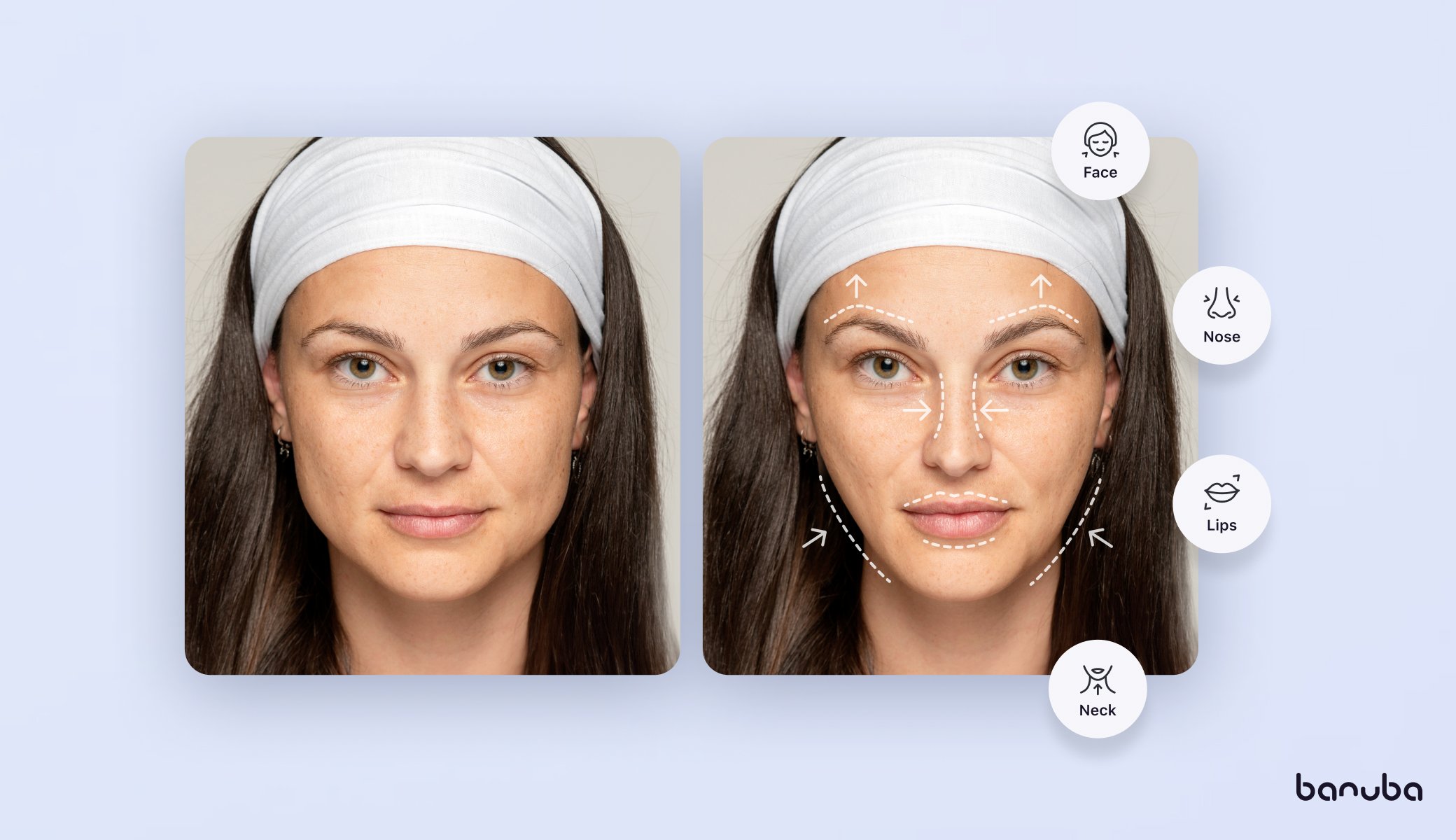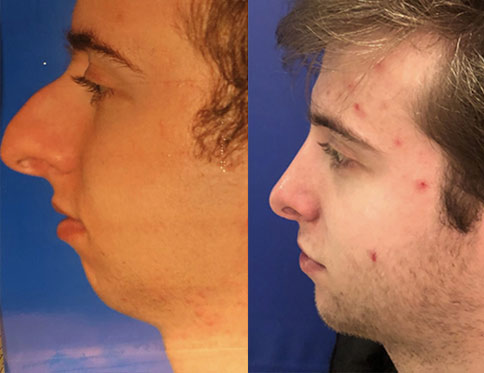Checking Out the Psychological and Social Aspects That Drive People to Consider Aesthetic Surgical Procedure as a Means of Enhancement
The choice to pursue cosmetic surgical procedure frequently extends past plain visual appeals, intertwining with social and emotional dynamics that warrant detailed evaluation. Factors such as self-esteem, prevalent societal beauty standards, and the prevalent influence of social media converge to form private motivations for medical enhancement.
The Role of Self-worth
Self-confidence substantially influences a person's decision to seek plastic surgery. People with low self-worth commonly perceive themselves in an adverse light, causing sensations of inadequacy regarding their physical look. This adverse self-perception can drive them to look for surgical interventions as an approach of improving their self-image. The desire for renovation in one's appearance is regularly linked to an idea that such changes will certainly elevate their overall self-respect and self-confidence.

Inevitably, the function of self-confidence in the decision-making procedure relating to plastic surgery highlights the complicated interaction in between body image, personal fulfillment, and mental wellness. Recognizing this relationship is essential for medical care specialists to ensure that patients are making educated choices rooted in realistic expectations and psychological health.
Social Elegance Standards
Influenced by pervasive media representations and social narratives, social elegance standards play a vital function fit people' assumptions of their own bodies. These criteria are often characterized by an idealized type of elegance that stresses qualities such as youthful vigor, proportion, and slimness. As these ideals are continued with various networks, consisting of tv, film, and advertising, individuals often internalize these messages, leading to frustration with their all-natural appearance.
The implications of these social norms extend past aesthetic choices; they can impact self-esteem, psychological health and wellness, and interpersonal partnerships. Individuals that regard themselves as disappointing these criteria may experience sensations of inadequacy, prompting a need for plastic surgery as a way of accomplishing social authorization. This pursuit is often fueled by the idea that satisfying these perfects will improve not only physical look but additionally social standing and personal gratification.

Impact of Social Media
The influence of social charm criteria is further magnified by the increase of social media systems, where curated images and idealized representations of charm are ubiquitous. Individuals are regularly revealed to filteringed system and edited photos, which frequently illustrate unattainable physical characteristics. This exposure cultivates a society of contrast, leading individuals to evaluate their own appearance versus these often unrealistic benchmarks.
Social media site influencers and celebrities frequently promote aesthetic procedures, normalizing the concept that medical enhancements are a sensible means for achieving societal ideals (plastic surgery rancho cucamonga). The exposure of these enhancements can produce an understanding that going through plastic surgery is a conventional practice, consequently influencing people to consider similar interventions as a pathway to boosted self-esteem and social acceptance
Moreover, the interactive nature of social media permits immediate feedback through sort and comments, additionally strengthening the wish to satisfy preferred beauty criteria. Such communications can worsen feelings of inadequacy and drive individuals towards plastic surgery as a way of getting validation. Ultimately, social networks plays a crucial function in shaping perceptions of charm, which significantly influences the decision-making procedures surrounding cosmetic surgery.

Social Viewpoints on Appearance
Across various societies, perceptions of look are deeply rooted in historical, social, and economic contexts, shaping individuals' sights on elegance and worth. In lots of cultures, look offers as a considerable marker of identity, affecting social status, professional possibilities, and personal partnerships. As an example, in some societies, light skin is usually related to wealth and advantage, while others may idealize darker complexion as signs of stamina and authenticity.
In addition, conventional elegance standards are frequently continued via social narratives, media representations, and household affects, causing varying suitables across different regions (plastic surgery rancho cucamonga). In Western cultures, the focus on young people and physical conditioning frequently drives individuals toward aesthetic improvement, while in particular Eastern societies, more refined adjustments lined up with standard looks might be liked
Globalization and the spreading of read review digital media have actually even more made complex these characteristics, developing a hybridization of appeal perfects that goes beyond geographical boundaries. As people progressively browse these cultural stories, the stress to adapt particular appearance criteria can bring about the wish for cosmetic surgery, showing an intricate interaction of individual desires and cultural values. Comprehending these cultural viewpoints is crucial in attending to the inspirations behind plastic surgery considerations.
Psychological Influences of Cosmetic Surgical Treatment
Several individuals seeking cosmetic surgical treatment report experiencing extensive emotional influences that can considerably change their self-perception and psychological well-being - plastic surgery rancho cucamonga. The wish for physical improvement often originates from underlying concerns such as reduced self-confidence, body dysmorphic disorder, or societal stress concerning appeal standards. For some, the prompt post-operative stage can bring about a short-lived increase in confidence and fulfillment with their look, cultivating a feeling of empowerment
Nonetheless, these positive sensations may not be withstanding. Research shows that while some clients experience boosted self-esteem, others might encounter intense stress and anxiety or depression if their assumptions are not fulfilled. This discrepancy can emerge from unrealistic suitables perpetuated by media representation and cultural my blog narratives bordering charm.
Furthermore, the mental ramifications of plastic surgery extend beyond the person. Relationships with household and buddies might be strained as social characteristics shift, causing feelings of isolation or alienation. Eventually, the emotional effects of plastic surgery are complex and complex, calling for cautious factor to consider by both possible clients and doctor to make sure enlightened decision-making and sensible expectations.
Verdict
To conclude, the decision to go after plastic surgery is dramatically affected by a combination of self-worth concerns, societal beauty standards, and cultural point of views on appearance. The pervasive reach of social media further exacerbates these pressures, promoting impractical ideals that individuals often strive to acquire. Comprehending these social and mental elements is necessary for addressing the motivations behind plastic surgery, highlighting the demand for an extra nuanced conversation surrounding charm and self-acceptance in contemporary culture.
The choice to seek cosmetic surgical treatment frequently extends beyond mere visual appeals, intertwining with emotional and social characteristics that warrant comprehensive examination. Ultimately, social media plays a crucial role in forming assumptions of beauty, which dramatically affects the decision-making processes surrounding cosmetic surgical procedure.
As individuals increasingly navigate these social narratives, the stress to adapt to certain look standards can lead to the wish for cosmetic surgical procedure, reflecting a complex interplay of personal goals and cultural worths.In conclusion, the choice to pursue cosmetic surgical treatment is significantly affected by a mix of self-esteem concerns, social beauty criteria, and social point of views on look. Comprehending these emotional and social aspects is click to read more essential for addressing the inspirations behind cosmetic surgical procedure, highlighting the demand for a much more nuanced conversation bordering beauty and self-acceptance in contemporary culture.